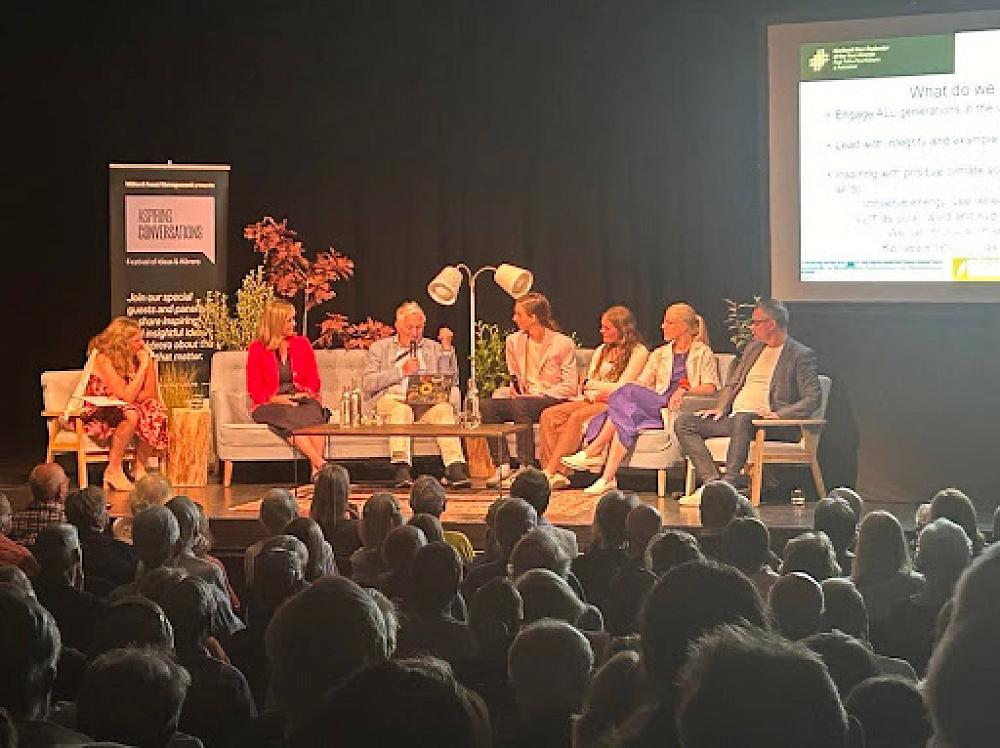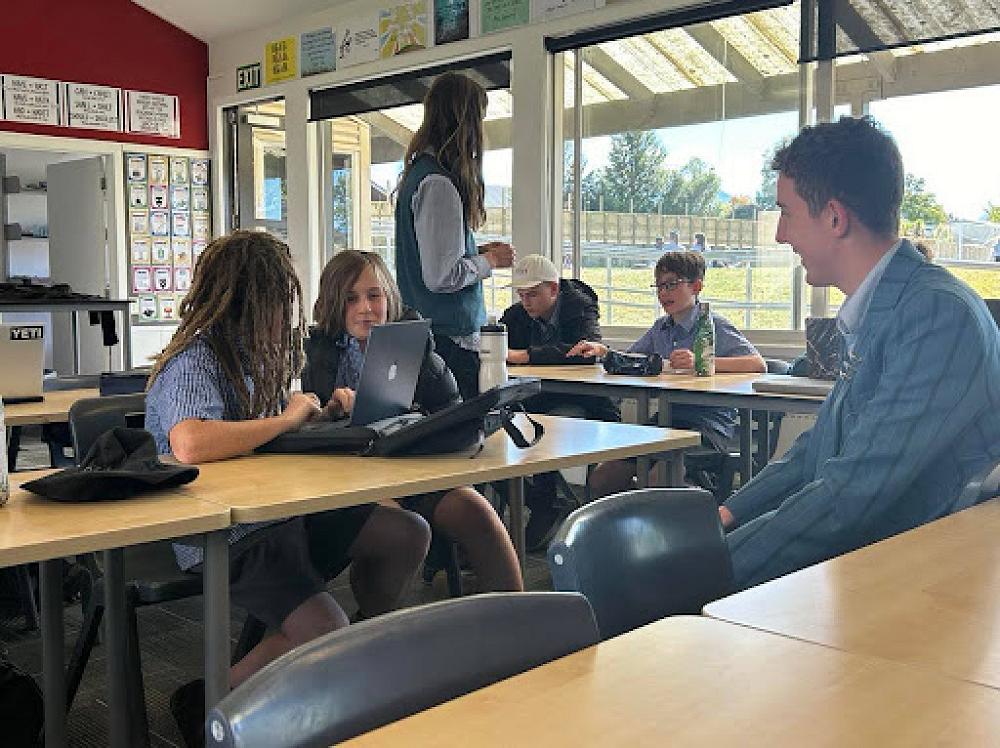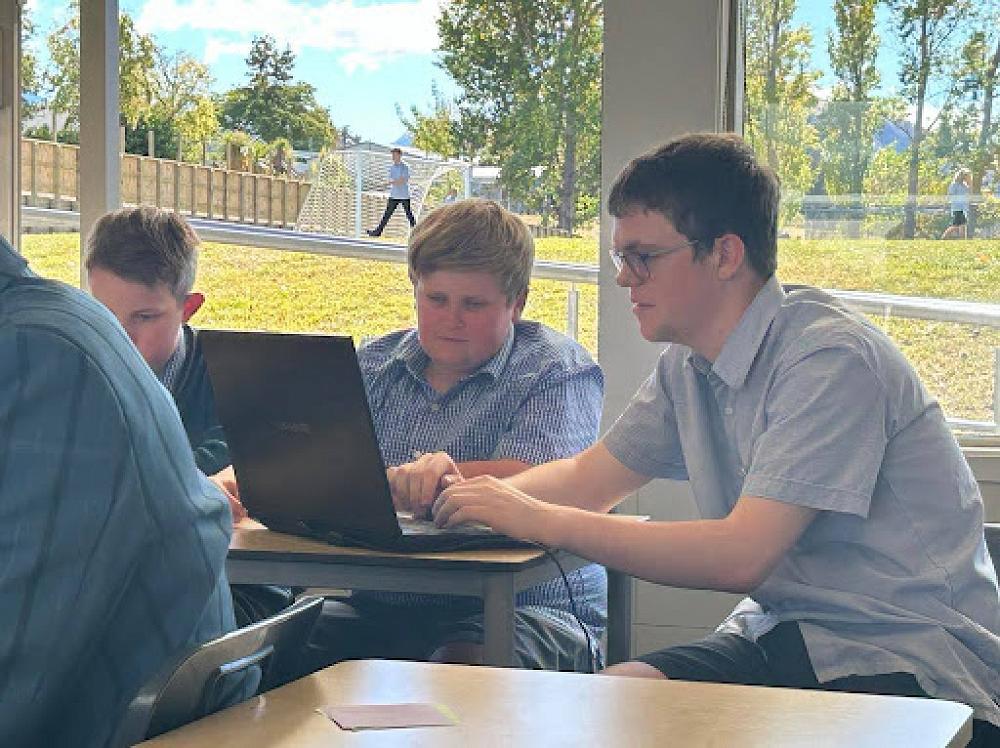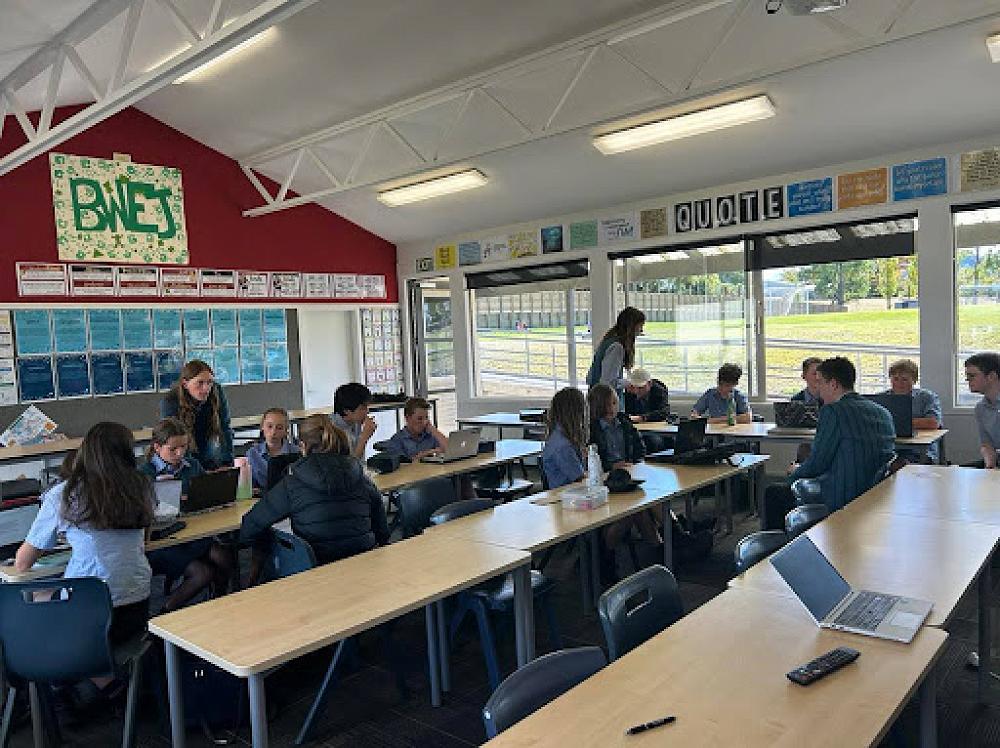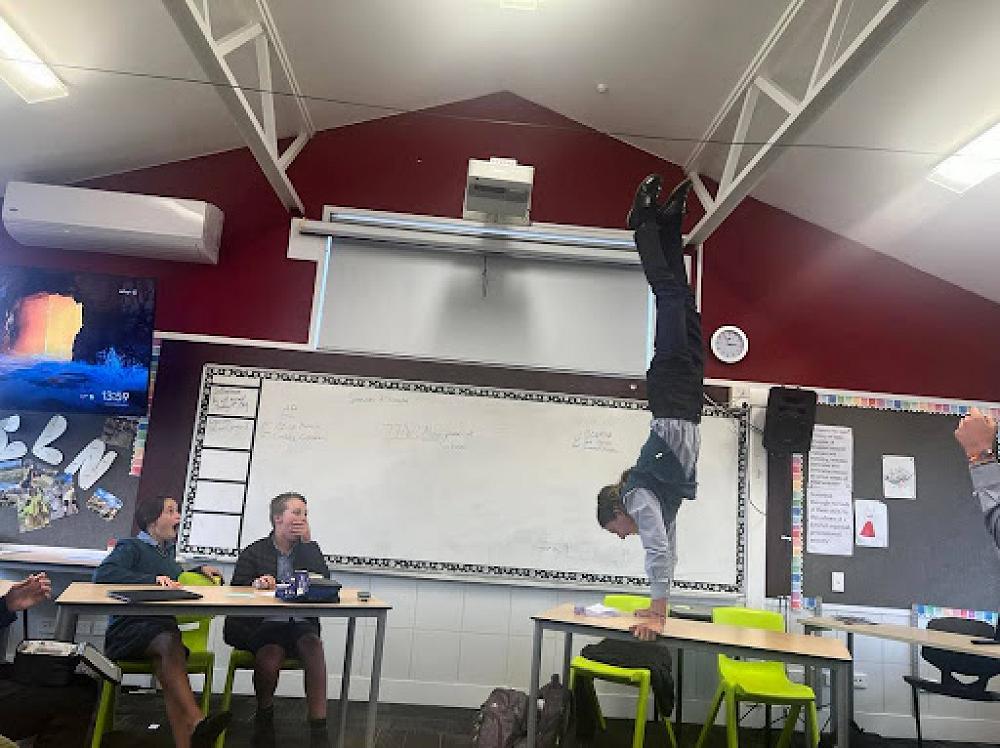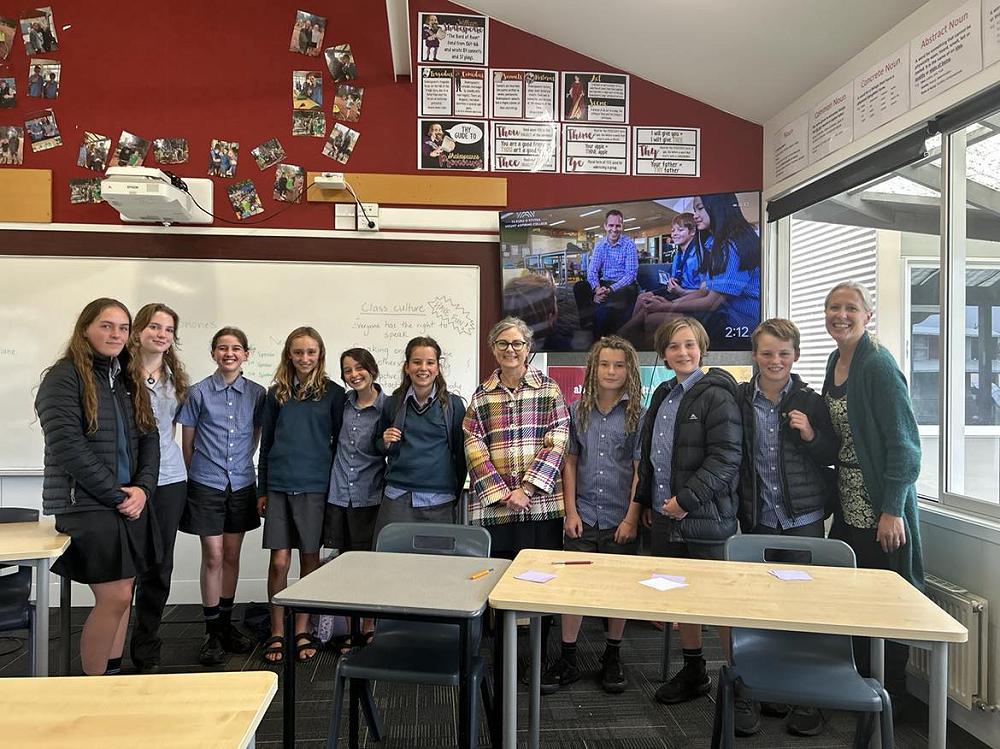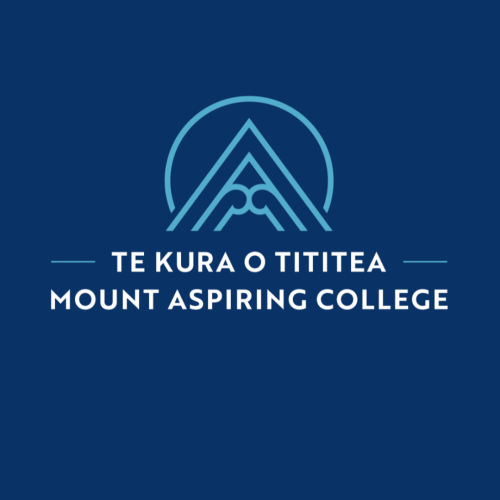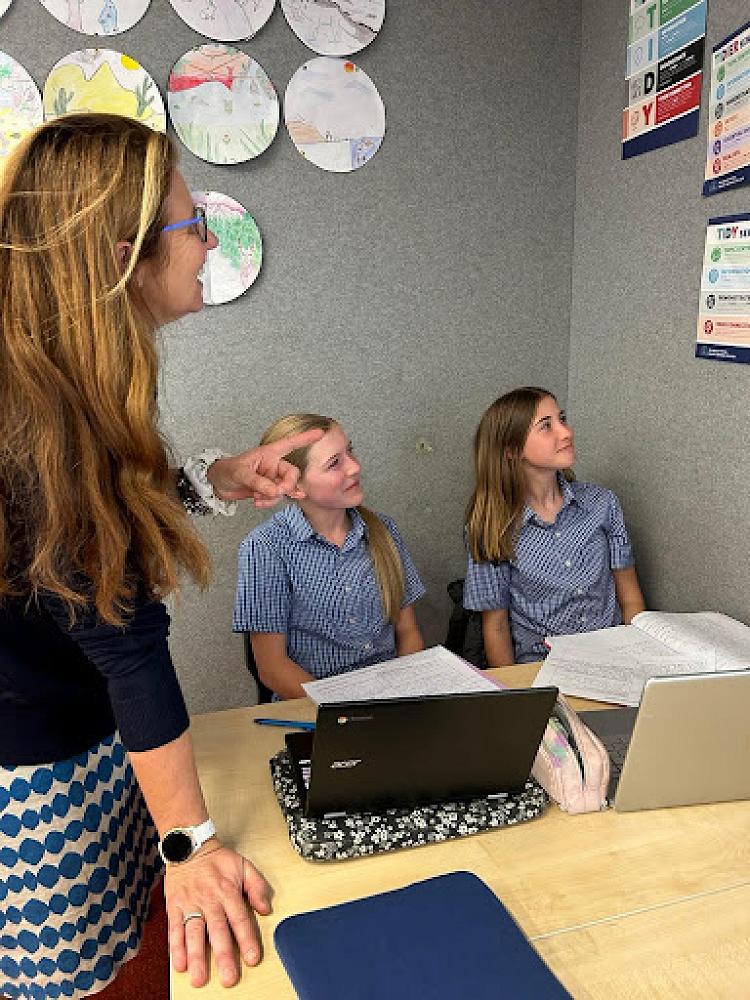
ACADEMIC
This week, we shine a light on our English learning area.
The English curriculum's heart is a love of language and how language reveals viewpoints, perspectives, and contexts. Students embark on an exploration into worlds through literature: historical and fictional, in the hope that they will see themselves, but also others, there. Students read and experience the craftsmanship of writers, speakers, and media designers, fostering the skills they value in their own work. English teaches the function of language and literature and gives students the power to communicate accurately and effectively.
Ko te reo te tuakiri.
Ko te reo tōku ahurei.
Ko te reo te ora.
Language is my identity.
Language is my uniqueness.
Language is life.
Focus on curriculum
The refreshed curriculum, Te Mātaiaho, has placed a personal and participatory value on learning: students should see themselves in their education, drawing on pre-existing and new-found knowledge to form conclusions. The English department has chosen TOPIC exploration and thematic-based courses to give students more autonomy and scope in this learning process. In Term 1, Year 8 students took part in field trips in and around Wānaka; the focus was to understand kaitiakitanga, and from this exploration, students produced a report on ways in which guardianship could occur. Towards the end of this term, Year 10 students will embark on a personal journey through their history. They will focus on an aspect of their whakapapa (ancestry), exploring how their roots have shaped the paths they walk today. Senior English students are encouraged to frame an inquiry around the literature they have studied in class, making connections in and beyond the text through critical analysis; citing and evaluating the usefulness of resources is valuable preparation for future study.
The fundamentals of literacy
Teaching the core skills of reading, writing, speaking, and listening are paramount in our subject area. We see it as a privilege to foster an environment that enhances processing and communication skills so students can communicate effectively across life’s disciplines. Literacy classes have been set up to strengthen students' knowledge of vocabulary and writing structures. Currently, Year 10 students are preparing for the national Literacy assessments in Reading and Writing, which focus on the fundamental skills required to communicate in ongoing study, work, and life. There will also be an additional opportunity for students in Years 9 and 10 to take part in these assessments in Term 3 if they choose to. The Year 13 Academic English course has challenged students to present literary analysis and social commentary through seminar presentations.
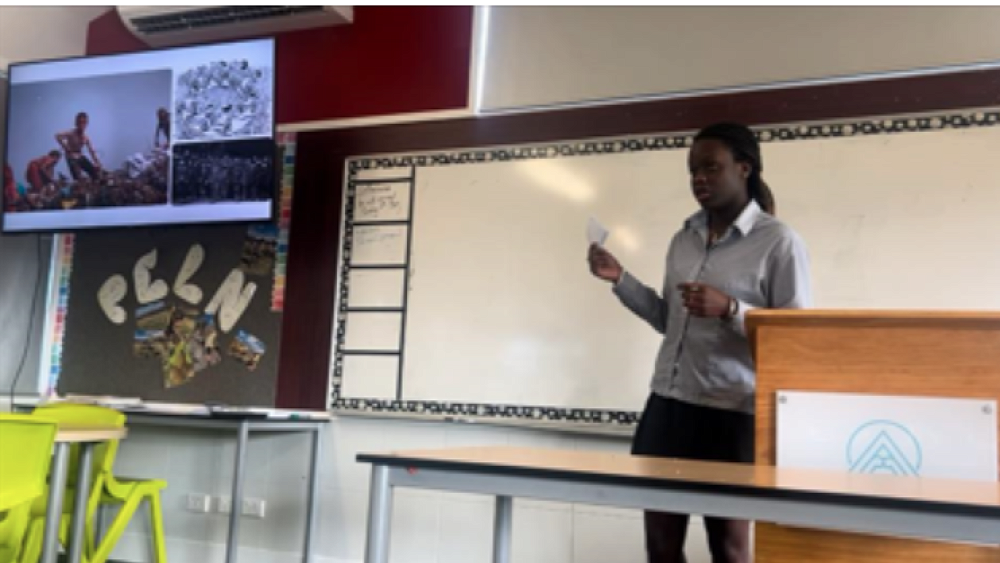
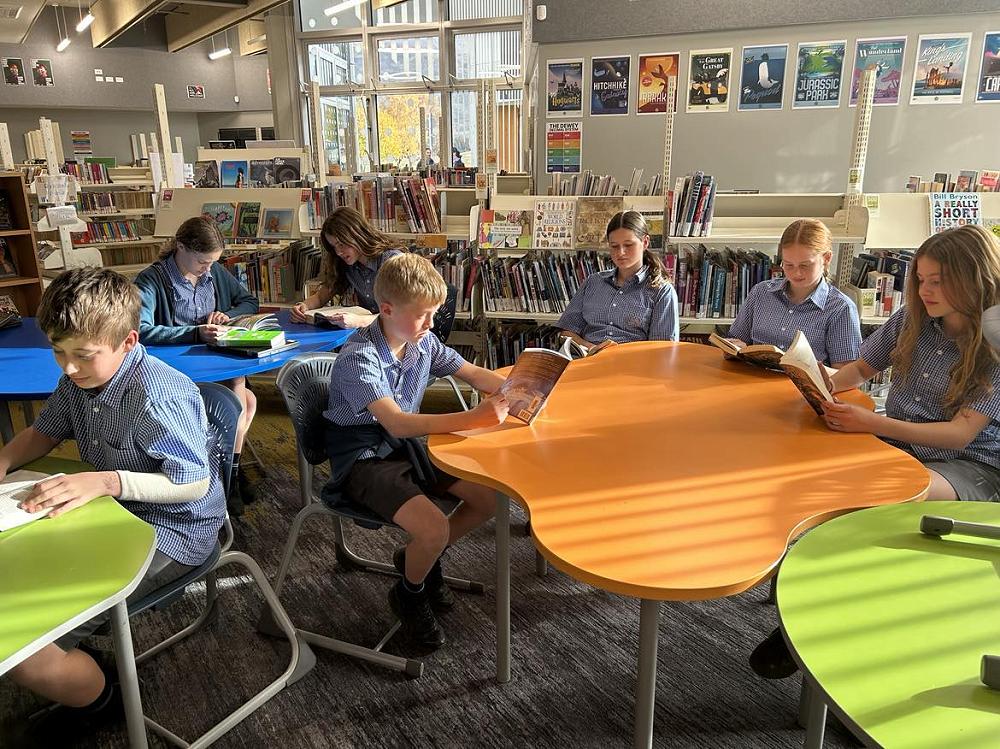
Supporting and extending our learners
English curriculum leaders have worked with staff and students to produce levels of learning models to effectively scaffold report writing. The TIDY and TIDIER paragraph structure enables learners to extend their ideas through explanation, supportive evidence, and wider world connections. Classroom posters, templates, and exemplars have been designed to support students in the curriculum across years of learning.

Activities, competitions, and clubs
The English department provides mentoring and opportunities to students who want to enhance their skills in writing, public speaking, and debating. Weekly meetings are held at lunchtime for the Aspiring Writer’s Club and students are encouraged to explore the modes and functions of writing through innovative tasks. Recently, writers in Years 7 - 13 were invited to showcase their work at the Aspiring Conversations festival. Speechmakers, James Watson and Elsa Buckley also spoke at the ‘What’s the Tipping Point?’ conversation alongside New Zealander of the Year Dr Jim Sallinger. In addition, the Lions Speechmakers and Rotary speech competitions are an excellent forum for students to refine their oratory skills. Josh Moody won the Wānaka Rotary Speech competition in 2023 and will continue to present at the district competition this year. Zoe Laws, Tane Haines, Denali Emitt, and Dani McGuire have also been named as Southland regional debaters and will be mentored by Otago and national debaters in 2024. Our debate club is particularly active in the school, holding weekly meetings and termly events. Our most recent debates enabled the seniors to mentor juniors over several weeks in what eventuated in highly creative and persuasive debating styles.
